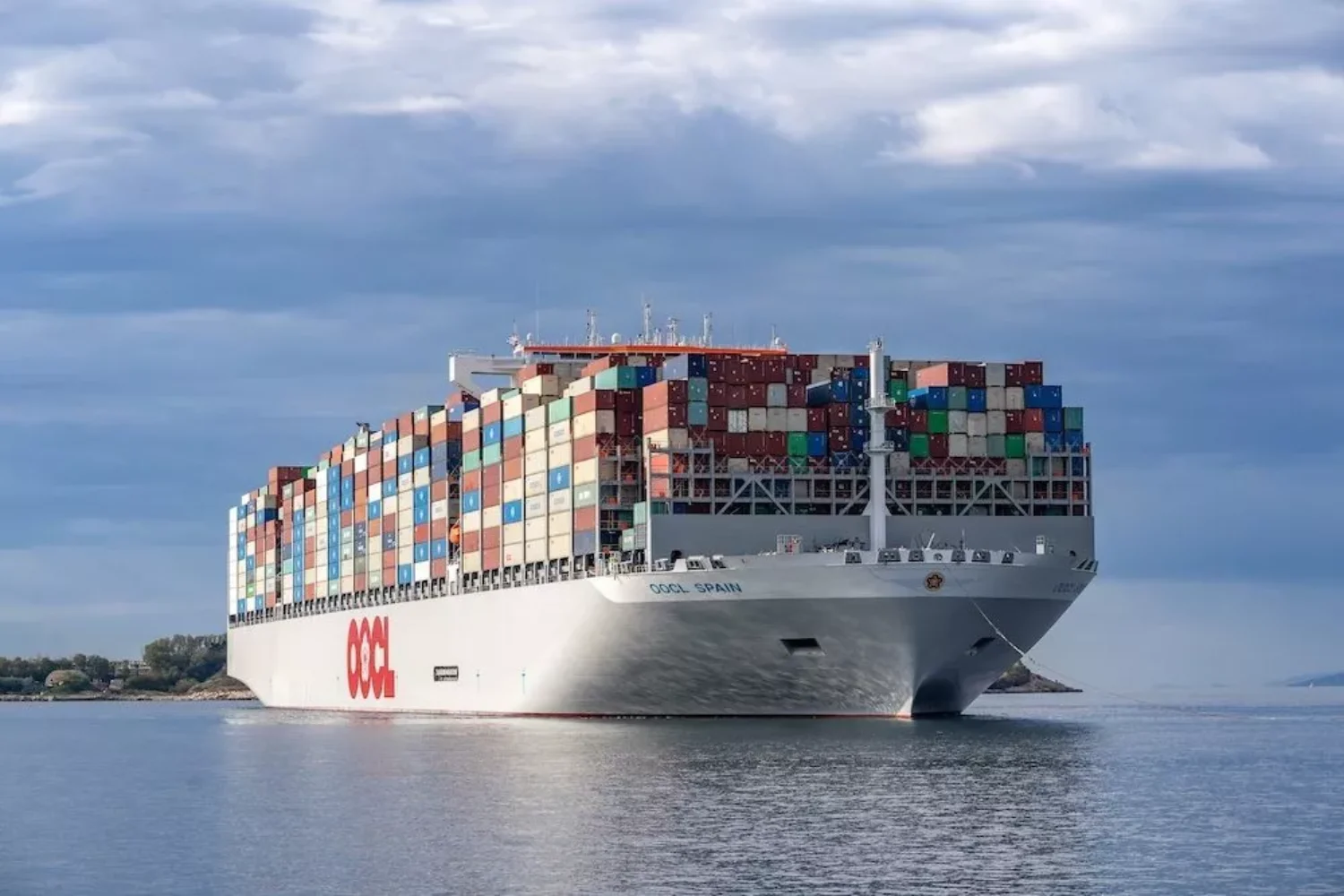Hong Kong-listed Orient Overseas International (OOIL), owned by shipping company OOCL, improved its earnings in the first half of 2025. However, the prospect of additional port charges imposed by the US on Chinese shipping companies is causing concern.
The shipping company, which is owned by Cosco, was able to increase its results compared to the same period last year. Revenue amounted to around $4.88 billion – an increase of around 5% compared to the first half of 2024 ($4.65 billion). EBIT amounted to $985 million, compared to $840.5 million in the previous year. The Container Transportation and Logistics division achieved an EBIT of $977 million, with a margin of 20.1%. Among the highlights of the first half of the year, OOCL cited the increase in container capacity to 3.9 million TEU and the order for 14 container ships of 18,500 TEU each, which are being prepared for operation with methanol and are to be delivered between 2028 and 2029.
In the interim report, however, OOCL pointed out that the additional fees from the USA will have a “relatively large impact”. The company is referring to plans announced by the US Trade Representative in April, which are due to come into force in October. The aim is to curb China’s dominance in shipbuilding and strengthen the capacities of domestic shipyards in accordance with the plan known as “MASGA” (“Make American Shipbuilding Great Again”). Port fees can run into the millions per ship.
Both OOCL and its parent company Cosco, part of the Ocean Alliance, have already taken measures such as introducing services that call at Mexico instead of US ports.
Segmented market offers opportunities for shipping companies
OOIL added that continued disruption could actually help boost profits. “As global trade patterns become more regionalized, market divergence may occur,” it said. Expanded or restructured supply chains are also conceivable, as are delayed reactions to current developments. Shipping companies could use these opportunities to adapt their strategies to segmented markets.
“Geopolitical uncertainties continue to have a significant impact on the shipping market,” the company continues. “If the situation in the Red Sea was a decisive factor in the strong development of the container shipping market in 2024, then the ongoing changes in customs policy and trade disputes have undoubtedly played a decisive role in shaping market trends in the first half of 2025.”













